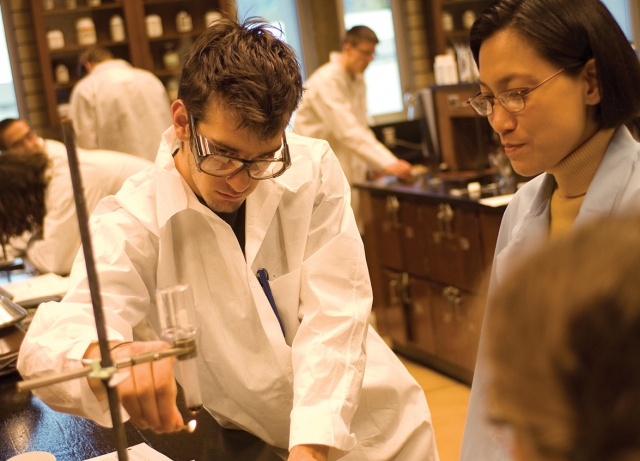Selkirk College takes action on doctor shortage
Selkirk College announced today that it is helping provide a proactive solution to the rural doctor shortage in Canada.
After nearly two years of study and preparation, the college has launched its Rural Pre-Medicine Advanced Diploma and Associate Degree Program. Based out of its Castlegar Campus, the program will offer students wanting to pursue a career in medicine a three-year opportunity to learn in the intimate setting of a rural college.
“Selkirk College understands rural life and the challenges of living away from urban centres,” says Selkirk President Angus Graeme. “We saw a need in this province and across the country for this type of start to a career in medicine. We are extremely pleased to be part of what could be an important piece of the solution.”
Research suggests there are many factors that contribute to the ongoing and increasingly severe shortage of rural doctors in Canada. Medical schools and various levels of governmenthave developed a wide range of programs and strategies to address some of these contributing factors. Selkirk College believes much more can be done at both the undergraduate and high school levels to encourage and support talented rural and Aboriginal students who wish to become physicians.
“This is an opportunity to provide the proper start to rural students who want to work in a rural setting,” says Neil Coburn, Selkirk College Vice President of Education and Students. “If their pathway towards medical school starts in a small centre, the data shows that when they graduate from medical school at an urban university they are more likely to return to a rural setting.”
A rural upbringing, combined with positive undergraduate and graduate rural exposure prior to and during medical school, are two factors consistently cited in recent research as the most important factors in determining whether a student will ultimately choose to practice in a rural environment. Rural and Aboriginal students face both real and perceived economic, social and educational barriers to becoming a physician. This program will address these barriers and give students who are underrepresented in medical schools a strong, viable pathway towards becoming a physician.
A unique touch to the program will be non-credit course work that weaves well into Selkirk College’s current strengths. In conjunction with the Mir Centre for Peace, students will receive mediation training, cultural sensitivity training, mindfulness training and contemplative practices to enrich and cultivate skills around attention and emotional balance, altruism, empathy, critical thinking and decision making. The college also hopes to offer directed service opportunities such as partnering with Selkirk’s BSc Nursing Program in its successful Street Nursing Initiative and the International Nursing Practice Experience in Guatemala.
“Selkirk College is perfectly positioned to offer a comprehensive pre-medicine program,” says Elizabeth Lund, Selkirk College Chemistry instructor and the originator of the program. “This is an exciting and innovative program in Canada and has garnered interest from all levels of health care. Although students can complete all of their required prerequisites at other institutions, we are offering an integrated program that, to our knowledge, is not available elsewhere in Canada.”
In creating this program, Selkirk College has worked closely with the UBC Faculty of Medicine, the Rural Coordination Centre of BC (a joint venture of the BC Medical Association, the Ministry of Health and the UBC Faculty of Medicine), Native Education College, the Interior Health Authority, Columbia Basin Trust, local physicians, nurses, nurse practitioners and other health care providers.
Students enrolled in the program will complete all of the requirements including the writing of the MCAT (Medical College Admission Test) and will be eligible to apply for entrance to the undergraduate MD program at UBC’s Faculty of Medicine.
“Entry in UBC Medicine is highly competitive and excellent students who meet all of the entrance criteria are turned down each year,” says Lund. “Any students who are not accepted into medical school after third year or choose to pursue different career paths can transfer into fourth year at a university, such as UNBC [University of Northern British Columbia], and complete a Bachelor’s degree in an alternate pathway.”
The start date of the program is Fall 2014, with an initial cohort of 24 students admitted to the program.
For more information on the Rural Pre-Medicine Program at Selkirk College please contact David Feldman, School Chair for University Arts & Sciences at 250.365.1331 or via email at dfeldman@selkirk.ca. You can also check out the Selkirk College website at: selkirk.ca/program/rural-pre-medicine.


























Comments